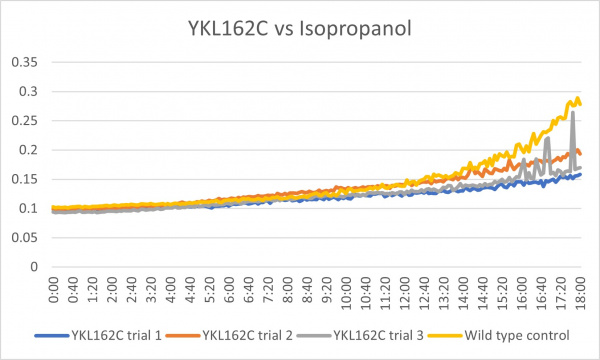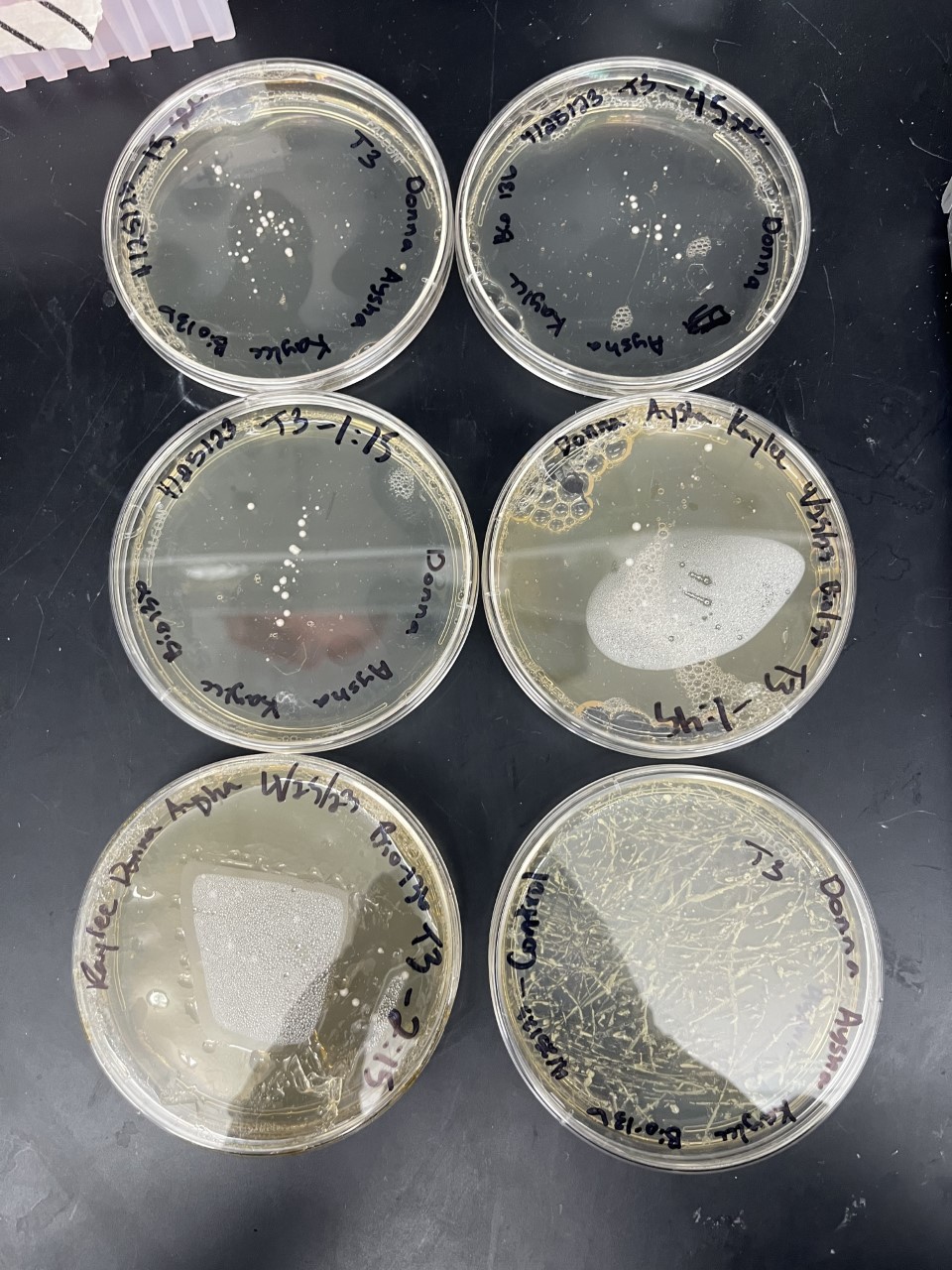Difference between revisions of "YKL162C"
(→Analysis) |
(→Heat Shock) |
||
| Line 51: | Line 51: | ||
==Heat Shock== | ==Heat Shock== | ||
{| class="wikitable" | {| class="wikitable" | ||
| − | |+ | + | |+ YKL162 Yeast Colonies at 40 degrees Celsius |
|- | |- | ||
! Time (sec) !! Colonies !! | ! Time (sec) !! Colonies !! | ||
Revision as of 12:32, 2 May 2023
Share your knowledge...Edit this entry! <protect>
| Systematic name | YKL162C |
| Gene name | |
| Aliases | |
| Feature type | ORF, Uncharacterized |
| Coordinates | Chr XI:148838..147630 |
| Primary SGDID | S000001645 |
Description of YKL162C: Putative protein of unknown function; green fluorescent protein (GFP)-fusion protein localizes to the mitochondrion[1]
</protect>
Community Commentary
About Community Commentary. Please share your knowledge!
Isopropanol
Analysis
These results were what was expected and all 3 were consistent throughout the trials. Although there was less growth than the control group, it could mean that the cell is more sensitive to the isopropanol with the gene knocked out. In the third trial there was a little bit of spiking towards the end around 15:20-18:00 but other than that it was a good growth curve.
Heat Shock
| Time (sec) | Colonies | |
|---|---|---|
| 0 | 50 | |
| 15 | 41 | |
| 45 | 25 | |
| 75 | 24 | |
| 105 | 13 | |
| 135 | 25 |
The general trend of our data yielded a negative relationship between time of heat shock. About half of the yeast cells died off in a matter of 135 seconds at 40 degrees Celsius. It can be inferred that with a longer amount of time we the yeast cells could continue being killed off until all of them died.
<protect>
Bases
References
See Help:References on how to add references
See Help:Categories on how to add the wiki page for this gene to a Category </protect>

